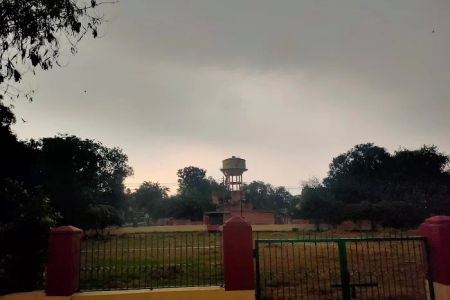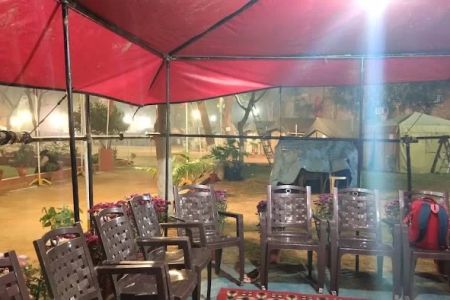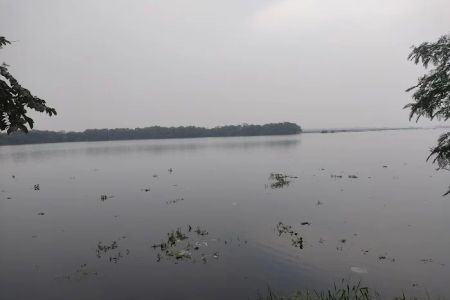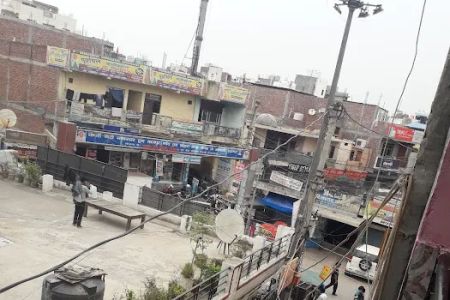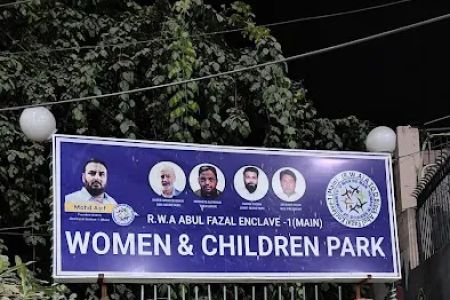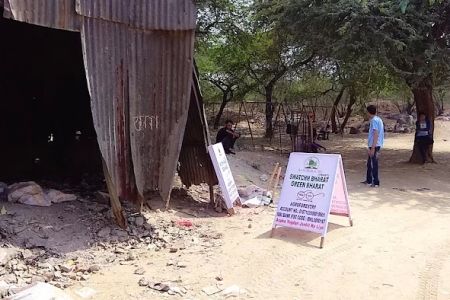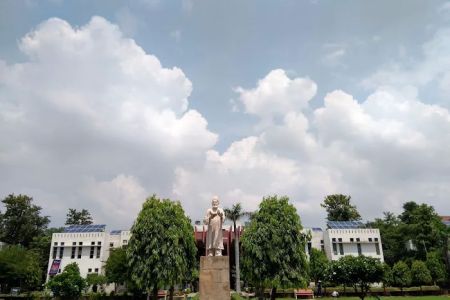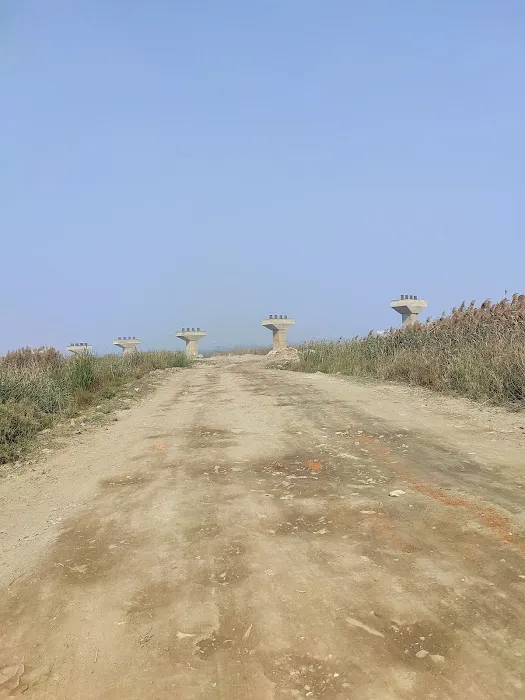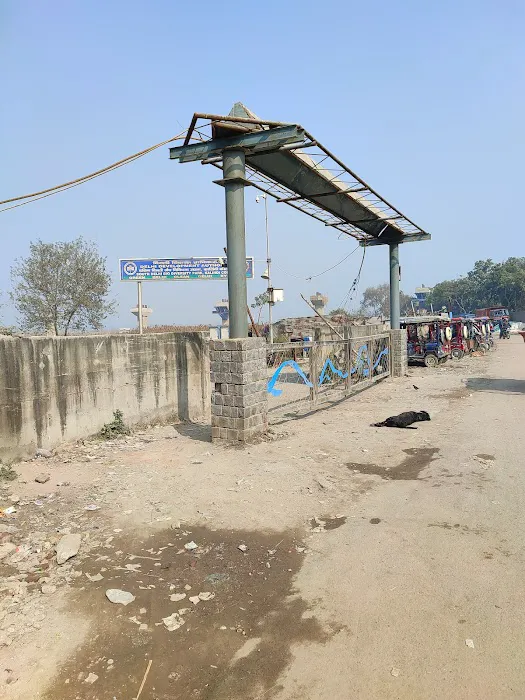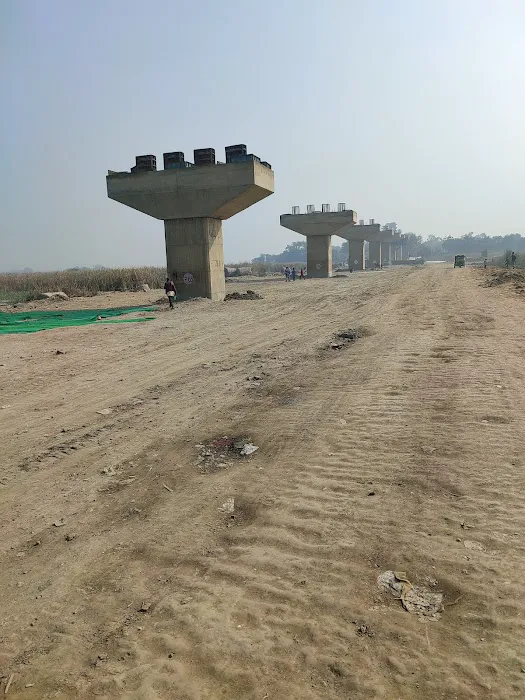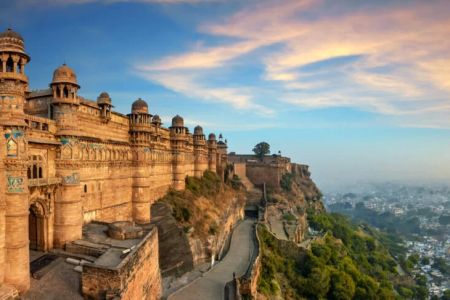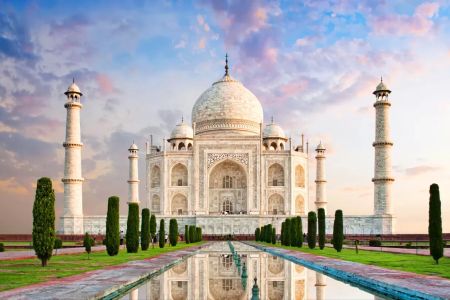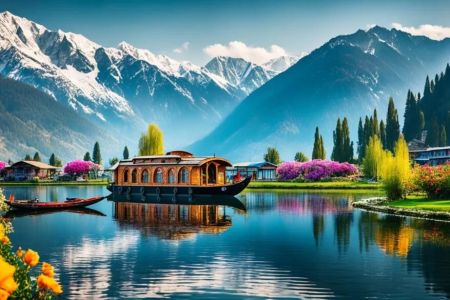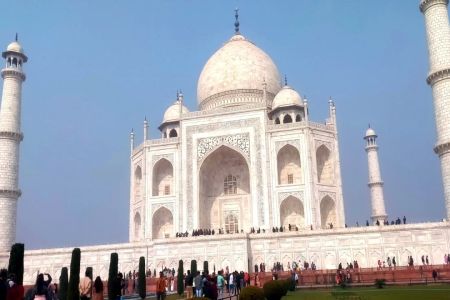Delhi, a bustling metropolis, is making remarkable strides in integrating nature and urban living. Among its many green initiatives, the development of Biodiversity Parks stands out as a visionary step towards ecological restoration and environmental consciousness. For the residents of Okhla and wider South Delhi, the South Delhi Biodiversity Park (often referred to as Neela Hauz Biodiversity Park, a key component within it or a related project based on the provided address) represents a significant natural asset. It's not merely a "park" in the traditional sense, but a meticulously restored ecosystem designed to bring back the native flora and fauna of the region, offering a much-needed sanctuary for both wildlife and human well-being.
These biodiversity parks are the result of concerted efforts by the Delhi Development Authority (DDA) in collaboration with scientific institutions like the University of Delhi. Their aim is to transform degraded landscapes into thriving natural habitats, serving as green lungs for the city, carbon sinks, and vital educational hubs. For you, our local users in Delhi, the South Delhi Biodiversity Park offers a unique opportunity to witness nature's resilience, engage in peaceful outdoor activities, and learn about the rich ecological heritage of your city.
This article will delve into the essence of the South Delhi Biodiversity Park, providing you with a clear, engaging, and factual guide. We will explore its precise location and how easily you can access this natural haven, the array of services and features it provides, and ultimately, why it is an invaluable and suitable destination for every Delhiite seeking a refreshing connection with nature.
Introduction / Overview
The South Delhi Biodiversity Park, located in Okhla, is part of Delhi's ambitious network of biodiversity parks aimed at ecological restoration. While the provided address (H79R+3P7, Sailing Club Rd, Batla House, Canal Colony, Okhla, New Delhi, Delhi 110025) points to an area near the Okhla Bird Sanctuary and potentially encompasses or is closely related to the Neela Hauz Biodiversity Park, it signifies a dedicated effort to create and preserve natural ecosystems within the urban fabric. These parks are not just landscaped gardens; they are scientifically developed zones that aim to recreate self-sustaining biological communities characteristic of the Delhi Ridge and Yamuna floodplains.
The core idea behind a biodiversity park is to restore degraded land, reintroduce native plant species, and consequently attract native fauna, including various bird species, mammals, and insects. This park, therefore, offers a living laboratory and a serene escape. It is a testament to how urban areas can coexist with rich natural environments, providing ecological benefits like improved air quality, groundwater recharge, and enhanced biodiversity. For Delhiites, it offers a tranquil space for nature walks, birdwatching, and a deeper appreciation for the environment, acting as a crucial green infrastructure for the city's climate resilience and overall quality of life.
Location and Accessibility
The South Delhi Biodiversity Park is situated at H79R+3P7, Sailing Club Rd, Batla House, Canal Colony, Okhla, New Delhi, Delhi 110025, India. This location places it within the broader Okhla region, an area known for its mix of residential zones, educational institutions (like Jamia Millia Islamia), and proximity to the Yamuna River. Its positioning makes it relatively accessible for residents of South East Delhi and other parts of the city.
While the exact entry points and internal pathways can be explored upon arrival, the park's general area is well-connected by Delhi's robust transportation network. For those traveling by private vehicle, the park can be reached via well-maintained roads in Okhla, though specific parking information would be best verified locally or through recent visitor accounts. Public transport offers a convenient alternative. The Okhla Vihar Metro Station and Jasola Vihar Shaheen Bagh Metro Station, both on the Magenta Line of the Delhi Metro, are likely the closest metro stops. From these stations, a short auto-rickshaw ride or e-rickshaw would easily take you to the vicinity of the park. Additionally, numerous DTC bus routes operate in the Okhla area, providing another layer of accessibility for daily commuters and visitors. This ensures that the South Delhi Biodiversity Park remains within comfortable reach for a wide range of Delhi residents eager to explore its natural beauty.
Services Offered
The South Delhi Biodiversity Park, as a dedicated ecological restoration project, offers a unique set of "services" to its visitors, primarily centered around nature and conservation:
- Nature Trails and Walking Paths: The park features well-maintained walking tracks that meander through diverse ecosystems, allowing visitors to explore different plant communities and observe wildlife in their natural habitats.
- Birdwatching Opportunities: Being a biodiversity park, it attracts a wide array of avian species, both resident and migratory. It serves as an excellent spot for birdwatchers and nature photographers to observe various birds in a relatively undisturbed environment.
- Environmental Education: The park often includes educational signage and interpretive displays along its trails, providing information about the native flora, fauna, and the importance of biodiversity conservation. Some parks of this nature also host workshops or guided tours, though these may require prior arrangement.
- Habitat Restoration: The park itself is a living example of ecological restoration, showcasing how degraded land can be transformed into thriving ecosystems, which is a valuable educational service in itself.
- Air and Water Purification: As a natural ecosystem with extensive plant cover and often restored water bodies, the park contributes to local air purification and groundwater recharge, providing crucial ecological services to the city.
- Peaceful Retreat: It offers a serene and tranquil environment, providing a much-needed escape from the urban noise and pollution, ideal for relaxation, meditation, or simply unwinding amidst nature.
- Research and Conservation Hub: These parks often serve as sites for ecological research and conservation efforts by scientists and environmentalists, contributing to the broader understanding and preservation of biodiversity in the region.
Features / Highlights
The South Delhi Biodiversity Park, embodying the principles of ecological restoration, boasts several key features and highlights that make it a significant natural asset for Delhi:
- Restored Native Ecosystems: A primary highlight is the successful restoration of native plant communities characteristic of the Delhi Ridge and Yamuna floodplains. This includes diverse tree species, shrubs, grasses, and wetland vegetation, showcasing the region's original ecological heritage.
- Rich Biodiversity: The park is home to a wide array of flora and fauna. This includes a multitude of bird species (both resident and migratory), butterflies, insects, and various small mammals and reptiles, making it a vibrant living laboratory.
- Wetland Component (e.g., Neela Hauz): If the park encompasses or is closely linked to Neela Hauz Biodiversity Park, then a key feature is a restored freshwater lake and associated wetlands. These wetlands are crucial for attracting water birds and play a vital role in water quality improvement through natural filtration processes.
- Eco-friendly Infrastructure: The design and maintenance often incorporate sustainable practices, such as rainwater harvesting, use of organic fertilizers, and reliance on natural processes for water treatment (as seen in constructed wetlands), making it a model for urban sustainability.
- Contribution to Urban Environment: Beyond its aesthetic appeal, the park acts as a significant "green lung" for Delhi, helping to mitigate air pollution, reduce urban heat island effect, and recharge groundwater, thereby enhancing the city's environmental resilience.
- Scientific and Educational Value: Developed and managed by scientists in collaboration with the DDA, the park serves as an important site for ecological research and environmental education, offering insights into biodiversity conservation and sustainable living.
Promotions or Special Offers
As a public biodiversity park developed and managed by the Delhi Development Authority (DDA) in collaboration with academic institutions, the South Delhi Biodiversity Park does not typically offer commercial "promotions" or "special offers" in the way a private business might. Its core "offer" is free and open access to a valuable ecological space for all citizens.
- Free Entry: Generally, entry to Delhi's biodiversity parks is free of charge, making them accessible to everyone regardless of economic background.
- Public Programs: Occasionally, the park authorities or collaborating environmental organizations might host free educational workshops, nature walks, birdwatching camps, or conservation awareness programs. These are designed to promote environmental literacy and public engagement rather than commercial gain.
Any specific events or activities would be announced through official DDA channels, local newspapers, or environmental community groups. Visitors are encouraged to look for such announcements to take advantage of these free educational and recreational opportunities. It's important to note that while entry is typically free, there might be nominal charges for specific guided tours, special events, or the use of professional photography equipment, though this varies by park and specific event.
Contact Information
For inquiries or information regarding the South Delhi Biodiversity Park, including its operational details or specific programs, direct contact for the park itself might be limited. As it falls under the purview of the Delhi Development Authority (DDA) and is often managed in collaboration with the University of Delhi's Centre for Environmental Management of Degraded Ecosystems (CEMDE), contacting these overarching bodies is usually the most effective approach.
Address: H79R+3P7, Sailing Club Rd, Batla House, Canal Colony, Okhla, New Delhi, Delhi 110025, India
While a specific phone number for this precise location isn't universally published as a direct park contact, general inquiries for DDA Biodiversity Parks can often be directed to:
- General DDA Contact: For general DDA inquiries, you may find contact numbers on the official DDA website.
- Specific Biodiversity Park Contacts: Larger, more established biodiversity parks like Aravalli Biodiversity Park or Yamuna Biodiversity Park often have dedicated contact numbers and email addresses listed on the DDA's "Biodiversity Parks of Delhi" section or the CEMDE website (e.g., Aravalli Biodiversity Park: 011 26152972 / abp@biodiversityparks.org; Yamuna Biodiversity Park: 011-27616569 / ybp@biodiversityparks.org). Given that the South Delhi Biodiversity Park is part of this network, these general contacts may be able to direct your query.
It is recommended to check the official DDA or Delhi University websites for the most current and relevant contact details related to Delhi's Biodiversity Parks.
Conclusion: Why This Place is Suitable for Locals
The South Delhi Biodiversity Park stands as a prime example of urban ecological restoration, making it exceptionally suitable and beneficial for the local residents of Delhi. Its strategic location in Okhla, combined with its profound ecological purpose, ensures it is a cherished asset for the community.
Firstly, its accessibility offers an invaluable escape. In a city like Delhi, a scientifically restored green space that is relatively easy to reach by both private and public transport (including the metro) provides a vital opportunity for residents to reconnect with nature without having to travel far. This convenience encourages more frequent visits, promoting healthier lifestyles through walks and outdoor activities.
Secondly, the park acts as a crucial "green lung" for South Delhi. In an urban environment facing significant environmental challenges, including air pollution, the extensive native flora within the park contributes to improved air quality and a cooler microclimate. This directly enhances the well-being of surrounding communities and contributes to the city's overall environmental health.
Furthermore, its identity as a biodiversity park offers unique educational and recreational experiences. It's a living laboratory where children and adults can learn about local ecosystems, observe a wide variety of birds and other wildlife, and understand the importance of conservation. This fosters environmental awareness and a sense of stewardship among Delhiites, making it more than just a recreational spot but a hub for learning and appreciation of nature.
In essence, the South Delhi Biodiversity Park is a testament to sustainable urban development. It offers a tranquil oasis for relaxation, a vibrant habitat for wildlife, and a powerful educational tool, all freely accessible to the public. For the residents of Delhi, it represents a healthier, greener future, making it an indispensable and highly suitable part of their urban landscape.



